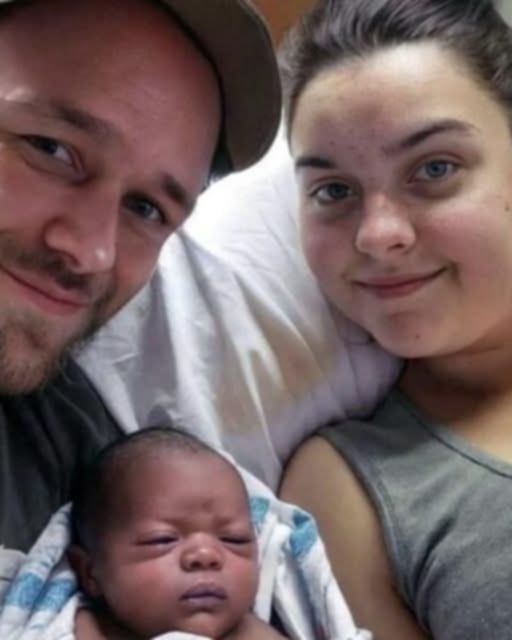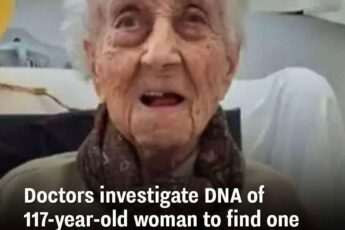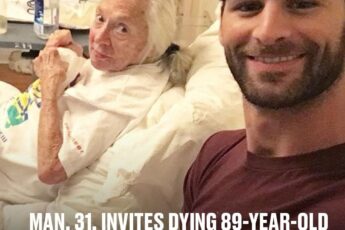My wife and I are both white. So on the day our daughter was born, we were surrounded by family, joy, and the kind of expectation that fills a hospital room with laughter and chatter. Everyone was ready to welcome the newest member of our family, convinced she would be a reflection of us—our genes, our history, our love. But the moment she arrived, everything shifted. My wife’s joy transformed into terror. She stared at the newborn in her arms, her eyes wide, her lips trembling, before she shouted with a voice that cracked the air, “That’s not my baby! That’s not my baby!”
The nurse, calm but firm, reminded her that the baby was still connected to her body. “There’s no mistake,” she said gently. But my wife’s panic only grew. “I never slept with a Black man!” she cried, desperation coloring her words, as if trying to explain away something she herself didn’t understand. The room went quiet, heavy with confusion. Our relatives, who had moments earlier been smiling and cooing with excitement, slowly and silently slipped out, one by one. Their absence left a hollow stillness behind.
I stood frozen, caught between disbelief and shame. I didn’t know what to say. My instincts screamed at me to leave too, to walk out and escape the crushing tension. But just as I turned, my wife’s voice softened to a whisper that made me stop in my tracks. “But… she has your eyes.”
Her words sank into me. For the first time since the delivery, I really looked at our daughter. Until then, I had seen only the shock of her skin, the swirl of confusion in everyone’s faces. But now, I noticed her. Her skin was a deep, rich brown that glowed against the white hospital blanket. Her tiny fists clenched tightly as if holding onto the world itself. Her cries filled the room, strong and demanding, proof of her life and spirit. And then there were her eyes—green, sharp, and familiar. They were my eyes. Unmistakable.
My chest tightened as my heart thudded hard against my ribs. I turned to my wife, who was now sobbing into her hands, her body trembling with the weight of what she couldn’t comprehend. The nurse, sensing the storm between us, quietly placed the baby in a bassinet and stepped out of the room, leaving us alone with the truth we couldn’t yet accept.
Finally, I asked the only question that made sense. “What’s going on?”
Through her tears, my wife shook her head. “I don’t know. I swear to you, I don’t know. This doesn’t make sense.” Her words were raw, filled with confusion and fear, but there was no deceit in them. I sat beside her, my own thoughts tangled between disbelief and the desperate need to understand. It felt like we were both drowning, pulled under by a wave of uncertainty with no clear way to the surface.
In the days that followed, the hospital ran every test possible. DNA panels, blood typing, everything they could think of to rule out a tragic mix-up. But the results came back undeniable: the baby was biologically ours. Ours. That truth, though scientifically clear, only deepened the mystery.
We turned to family history, combing through old records, asking questions no one expected. Did anyone in our families carry hidden roots, a branch of ancestry we didn’t know about? We found nothing. No trace. No answer that could explain her. Still, the proof was right there, swaddled in our arms, looking back at us with eyes that mirrored mine.
Bringing her home should have been joyous, but instead it was shadowed by unease. The house felt different, quieter, as if even the walls were waiting for an explanation. Friends came by with hesitant smiles, but I could see the questions written across their faces. Strangers stared in grocery store aisles. My wife, once vibrant and social, began to shrink into herself. She rarely left the house. She stopped answering calls. At night, she lay awake beside me, staring into the darkness, her silence louder than words. I tried to be strong for both of us, but the weight of the unknown pressed heavy on my shoulders.
Then, one quiet night, everything shifted again. I found her sitting at the kitchen table long after midnight. The lights above her flickered softly, and an old photo album lay open before her. Her face was streaked with tears, her hands trembling as she turned a page. When she looked up at me, her eyes carried both exhaustion and a terrible kind of resolve.
“I have to tell you something,” she said. Her voice was barely above a whisper, but it carried the weight of a confession that had been buried too long.
She told me about college, about how desperate she had been for money at the time. About how she had donated eggs to a fertility clinic, never imagining it would come back into her life. “I think my egg was used,” she said, her lips trembling. “And it was fertilized with sperm from a Black donor. That’s the only explanation that makes sense.”
Her words settled between us like glass shattering on the floor—sharp, impossible to ignore. I stared at her, trying to reconcile what she had just said with the daughter sleeping down the hall. My mind spun with questions. Had the clinic made a mistake? Had someone mixed up records? Or was this the consequence of something she had done years before, long before we even met?
But even as the confusion swirled, I couldn’t escape the truth staring at me from the beginning. Whatever the explanation, she was ours. She had my eyes. She had her mother’s lips. She was a part of us, no matter how tangled the story might be.
That night, sitting at the kitchen table with my wife’s confession hanging in the air, I realized something important. The answers might never come easily, and the road ahead would not be free of judgment or whispers. But the child in our lives was not a mistake, not a question mark. She was a gift.
And from that moment on, I knew my role was not to chase explanations, but to protect her, love her, and raise her in a world that might never fully understand her beginnings—but would, through us, come to see her worth.






